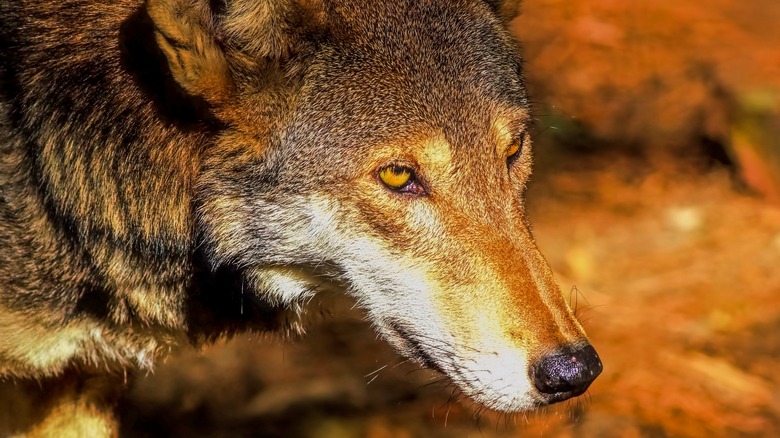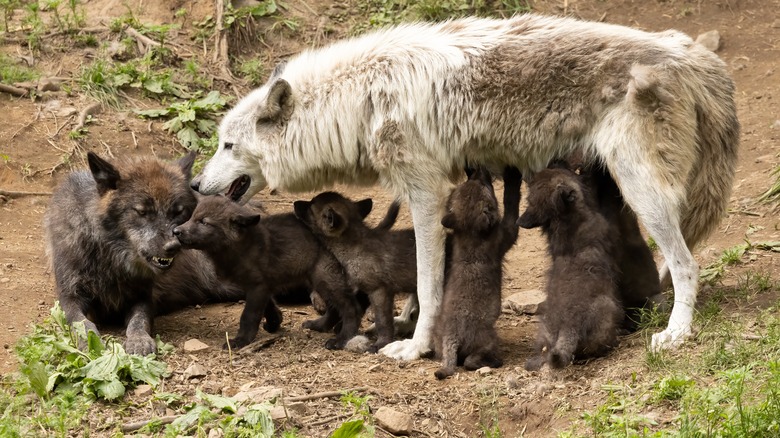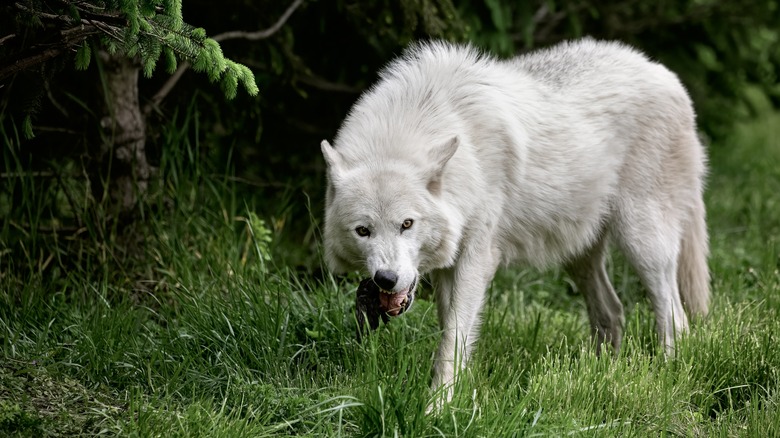Why Wolves Going Extinct Would Cause Biological Strife
Wildlife documentaries can be harrowing to watch at times. Often, the narrator will present the most adorable little critters, sometimes baby ones. Things take a somber turn as the predator is introduced, and proceeds to do what it does best.
It's difficult to watch predators hunting, killing and devouring their prey. They can be framed as the villains of the piece, shattering the idyllic, plant-devouring existence of other creatures in a swift, bloody attack. As Mufasa so wisely noted in "The Lion King," though, this is crucial for the circle of life.
At face value, it may seem that fewer predators would result in a happier, healthier time for their former prey. Ultimately, though, predators are vital for their ecosystems. The disappearance of wolves from various areas, it seems, has caused dramatic natural shifts in the balance of nature, and were they to become extinct, such effects could be repeated on a global scale.
The dangers of a trophic cascade
As the World Wildlife Fund for Nature (WWF) reports, wolves are yet another marvelous creature who find their existence under threat as the world's climate changes. They were once much more widespread in Europe, but populations have shrunk.
The WWF goes on to say that the 1800s and 1900s saw mass hunting of wolves and other large carnivore species, as they threatened the livestock humanity has come to rely on. Efforts to manage and preserve communities has contributed to the wolf population stabilizing (there are estimated to be 12,000 wild wolves in Europe), but predation from wolves has also proven to be crucial to the survival of other species, too.
According to Britannica, this phenomenon is known as a trophic cascade. This refers to the calamitous effects that can occur when a predator at the top of the food chain of a given ecosystem disappears. It can cause wide-ranging effects, the outlet states, such as when wolves returned to Alberta, Canada. Elk populations, preyed upon by the wolves, fell, and the plants fed upon by the elk increased in number. Mesopredators, the "runners-up" of the carnivore world, can reportedly become more established when top predators' numbers fall, thereby causing populations of their own preferred prey to diminish. This, in turn, can have an adverse effect on human industry, and well as the safety of populations close to such predators.
A howlingly bad impact on ecosystems
The July 2011 study "Trophic Downgrading of Planet Earth," from James A. Estes et al (via Science), discusses the impact of the diminishing and loss of apex predator numbers worldwide. Such animals, the report suggests, had been widespread around the world throughout history, and that "the loss of these animals may be humankind's most pervasive influence on nature."
The report concludes that there is an urgent need to focus on "the unanticipated impacts of trophic cascades on processes as diverse as the dynamics of disease, wildfire, carbon sequestration, invasive species, and biogeochemical cycles." A whole range of ecosystems on the planet, both in oceans and on the land, are an incredibly delicate balance, and reductions (and concurrent increases and reductions) in the populations of animals crucial to them can be devastating.
Smithsonian Magazine states that it's impossible to truly predict the biological strife that would be caused should wolves become extinct. However, such a tragedy would surely have profound effects. Wildfires, for instance, become more likely in areas where predator numbers are compromised, because the plants on which herbivores feed are changed. Those same animals, without wolves to feed on them, would surely explode in numbers, potentially leading to a lack of food. The repercussions would be wide-ranging and severe.


